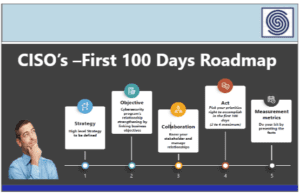Source: hackread.com – Author: Owais Sultan.
Artificial intelligence is transforming industries, but its adoption also raises ethical and cybersecurity concerns, especially in the regulated financial sector. Balancing innovation with responsibility is important as organizations harness AI’s potential while protecting data, ensuring fairness, and mitigating risks.
Navigating this intersection of AI ethics, cybersecurity, and finance requires careful strategy.
AI in Financial Systems
AI has revolutionized financial systems by enhancing decision-making processes, optimizing resource allocation, and improving fraud detection capabilities. One prominent area where AI thrives is in trading and market analysis. Algorithms powered by AI can analyze massive datasets in real time, identifying trends and making predictions with remarkable accuracy.
For example, traders often ask, Can you short futures effectively use AI? The answer lies in leveraging sophisticated machine learning models that evaluate market conditions, predict price movements, and execute trades with precision.
However, employing AI in such high-stakes environments also brings ethical considerations, such as ensuring transparency in algorithmic decisions and addressing the potential for systemic risks caused by automation. Balancing these advancements with robust governance is essential to maintaining trust and stability in the financial sector.
Why AI Ethics Matters
AI Ethics emphasizes fairness, accountability, and transparency in developing and using artificial intelligence systems. It prompts questions like, “Is this decision fair?” or “What are the risks if this algorithm fails?”
These issues are especially critical in finance, where AI-driven decisions can directly impact people’s financial well-being. Financial tools affect nearly every part of life from securing loans to managing investments making ethical practices essential.
Financial platforms must ensure their AI systems don’t discriminate based on factors like ethnicity, gender, or socioeconomic status. For instance, algorithms used to determine creditworthiness or loan approvals should be carefully designed and tested to prevent bias. Accountability is just as important; companies need systems to evaluate their AI’s impact and correct mistakes.
Transparency is another cornerstone of AI Ethics. Consumers should know how their data is collected, used, and analyzed. They also deserve clarity on AI-driven decisions and the reasoning behind them. By prioritizing fairness, accountability, and transparency, companies can build trust and ensure their tools serve users responsibly and equitably.
The Financial Costs of Cyber Threats
AI doesn’t just create opportunities; it generates risks too. Cybersecurity is a constant challenge. It’s already critical in finance, but AI raises the stakes further. Imagine someone hacking an AI-driven trading system. This could cause widespread market turmoil in minutes.
The costs don’t stop at financial losses. A data breach can damage a company’s reputation. People lose trust, and rebuilding that trust can take years. Businesses need strong security measures to protect against breaches and ensure their AI systems are strengthened.
Finding Balance Between Tech and Security
Innovation and security can often feel at odds. New technologies drive progress but can also create vulnerabilities, as cyber threats evolve just as quickly. Cybersecurity teams must not only respond to threats but also anticipate and address issues before they escalate.
This challenge becomes even greater with AI-powered systems. While transformative, their complexity makes them prime targets for attacks like data poisoning, adversarial manipulation, or algorithm flaws any of which can have serious consequences.
To secure these systems, organizations should take a layered approach: regular audits to find vulnerabilities, secure coding to reduce risks, and employee training on handling sensitive data. By acting proactively, businesses can innovate without compromising security.
The Future of AI Responsibility
The future of AI is tied to how well we manage its capabilities and risks. Industries must keep asking tough questions. How much control should AI have? How do we hold businesses accountable when things go wrong?
This future depends on a collaborative effort. Governments, businesses, and researchers need to work together. Clear regulations should guide how AI is developed and used. Companies should prioritize ethical practices without cutting corners in pursuit of profits. Transparency, fairness, and strong cybersecurity protocols must remain non-negotiable.
The future of AI is both exciting and daunting. While it holds immense potential to improve our lives, it also poses significant challenges that must be addressed. As we continue to integrate AI into our society, we must do so with caution and responsibility.
We must continue having open discussions about the ethical implications of AI and actively work towards creating regulations and guidelines that prioritize human well-being. We must also hold businesses accountable for their actions and ensure that they uphold ethical practices in the development and use of AI.
(Image by Gerd Altmann from Pixabay)
Original Post url: https://hackread.com/ai-ethics-cybersecurity-finance-navigating-intersection/
Category & Tags: Artificial Intelligence,Fintech,Security,AI,Cybersecurity,Technology – Artificial Intelligence,Fintech,Security,AI,Cybersecurity,Technology
Views: 0




















































